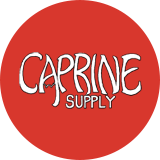Raising Kids on Pasteurized Milk
Why pasteurize?
There are a number of diseases that can be passed on to kids when they drink raw goat milk. A common one is Caprine Arthritis Encephalitis (CAE), which was identified by research workers at Washington State University. The virus causes arthritis in goats of all ages. It occasionally causes paralysis in kids. In fact, more than 80% of goats tested for CAE in the United States are positive, although many don't show symptoms. There are a few laboratories that run CAE tests. Contact your veterinarian for more information.
CAE, however, isn't the only serious disease to worry about. Mycoplasma and chlamydia are commonly identified in goat herds. Besides arthritis, they can cause pneumonia, mastitis, abortion, eye problems, and other illnesses. And while these diseases may be passed from infected animals to healthy ones through routine contact, you can improve the health of your kids (and eventually of your entire herd) by preventing your newborn kids from drinking milk or colostrum from infected does.
To do this, you can feed pasteurized cow milk or goat milk replacer, or you can do what we do: raise kids on pasteurized goat milk and heat-treated colostrum.
To feed newborns:
First, newborn kids should not nurse their dams at all. A single feeding of colostrum from an infected doe might be enough to spread disease to the kid. So try to be present when kids are born so you can remove them from their dams immediately.
Of course, it's not always possible to be there. So if a doe seems close to kidding, you can put tape around and over the ends of her teats to keep kids from nursing. The Leaker Seal Teat Tape we sell works quite well. Newborns should be fed heat-treated colostrum.
To heat-treat colostrum:
You can't pasteurize colostrum; it turns to custard. The best you can do is heat-treat it. Here's how to do it:
The easiest thing to do is to purchase a new WECK Canner/Pasteurizing unit. Since it is a water bath, you can set the temperature to heat-treat colostrum and not worry about turning the pot of colostrum into custard. You can also use the Weck to pasteurize milk.
To heat-treat colostrum without using the Weck: Put colostrum (the larger the batch, the easier it is to control the temperature) in a double-boiler or water-bath, and heat it to 135o F. You must then hold it at this temperature for one hour.
You can also use a thermos bottle. Fill the thermos with 135 degrees F water to preheat it. Warm the colostrum to 135 degrees F. Next, empty the thermos, put in the colostrum, put on the lid, and set the thermos aside for an hour.
Once your kids have had colostrum (we feed ours colostrum for their first 24 hours of life), you can switch them to pasteurized milk.
To pasteurize milk:
Pasteurizing milk is a lot easier than heat-treating colostrum. There is no holding time. Just heat the milk to 165 degrees F, stir it to make sure all the milk in the kettle is 165 degrees F, and you're done. Using an automatic pasteurizer like the Weck or SafGard makes it even easier.
You can pasteurize milk on the kitchen stove. Fill a tall tote pail with milk. Set the pail on a rack in a canning kettle with some water, and turn on the heat. Use a large dial thermometer which clips on the inside of the tote pail. Some people pasteurize milk successfully without using a water-bath. They say the trick is to make sure you don?t use milk from "just-fresh" does. That milk tends to scorch easily.
Using a home pasteurizer is most convenient. A loud buzzer sounds when pasteurizing is completed. Not only can you do something else while the milk is being pasteurized, but you can use the pasteurizer in the barn since it runs on ordinary 110-120 volt current.
While pasteurizing milk seems like a lot of trouble, we're sold on it. We've eliminated "big knees" and swollen joints in our herd, and we have fewer cases of pneumonia. When "pasteurized does" freshen, there's no more udder edema, and their production is superior to our "nonpasteurized does'." Best of all, we're raising healthy, robust kids who grow up to be good milk-producing, long-lived, healthy does.

Log In